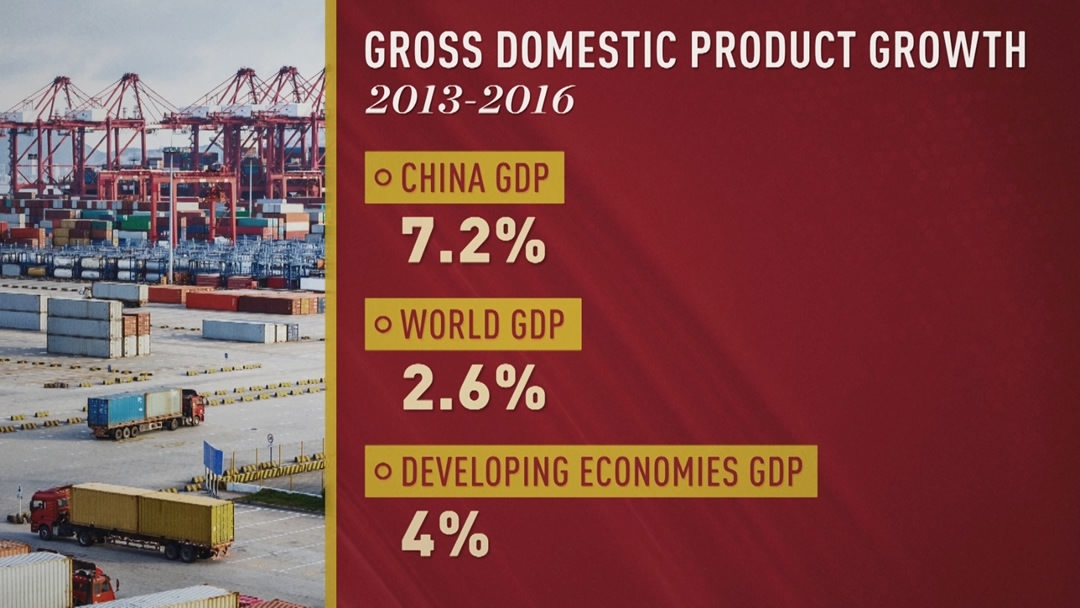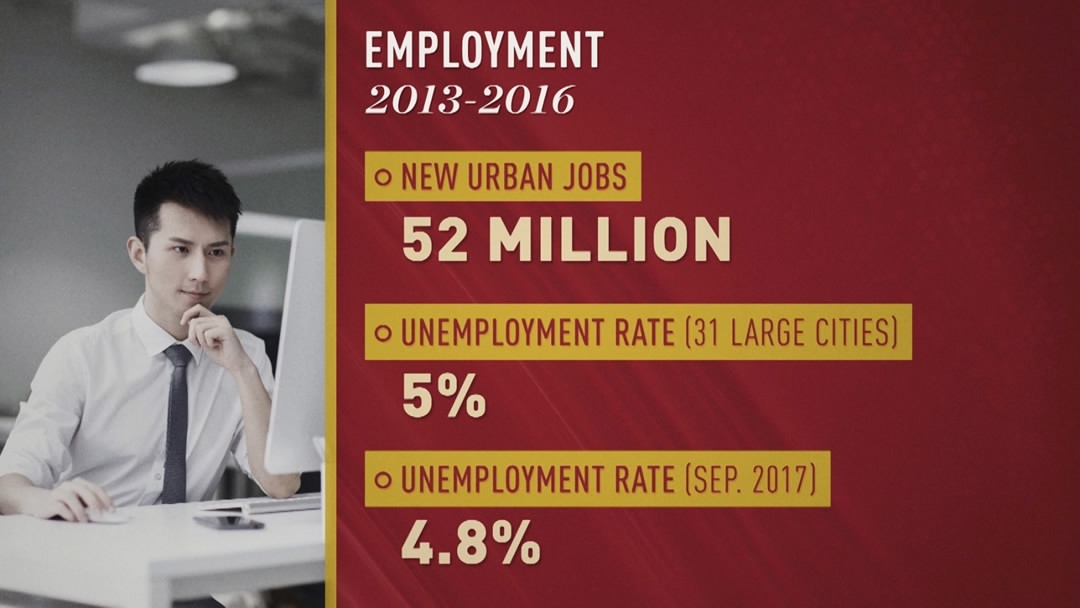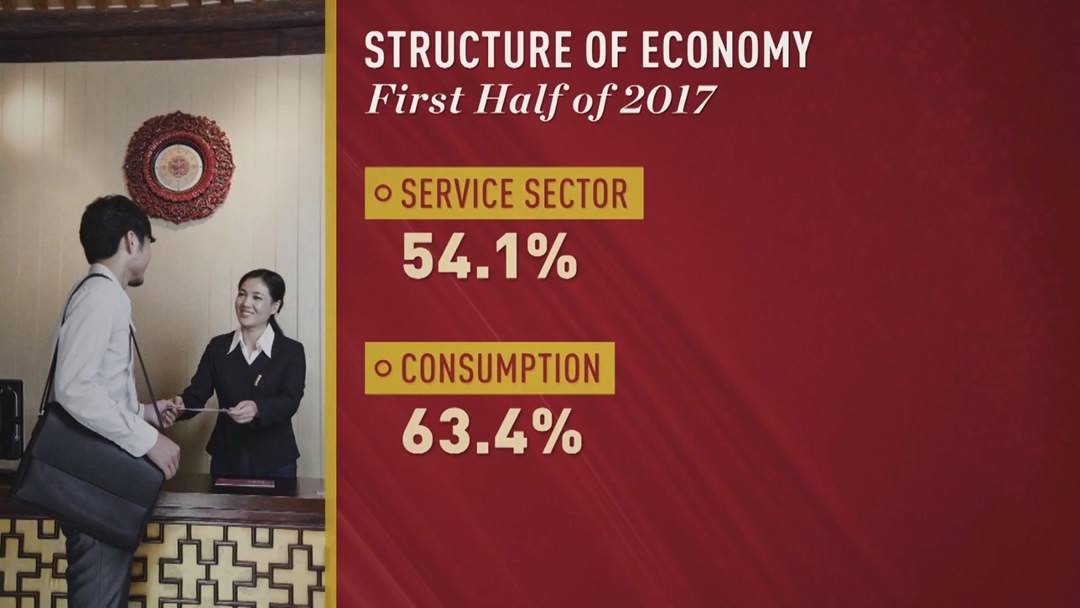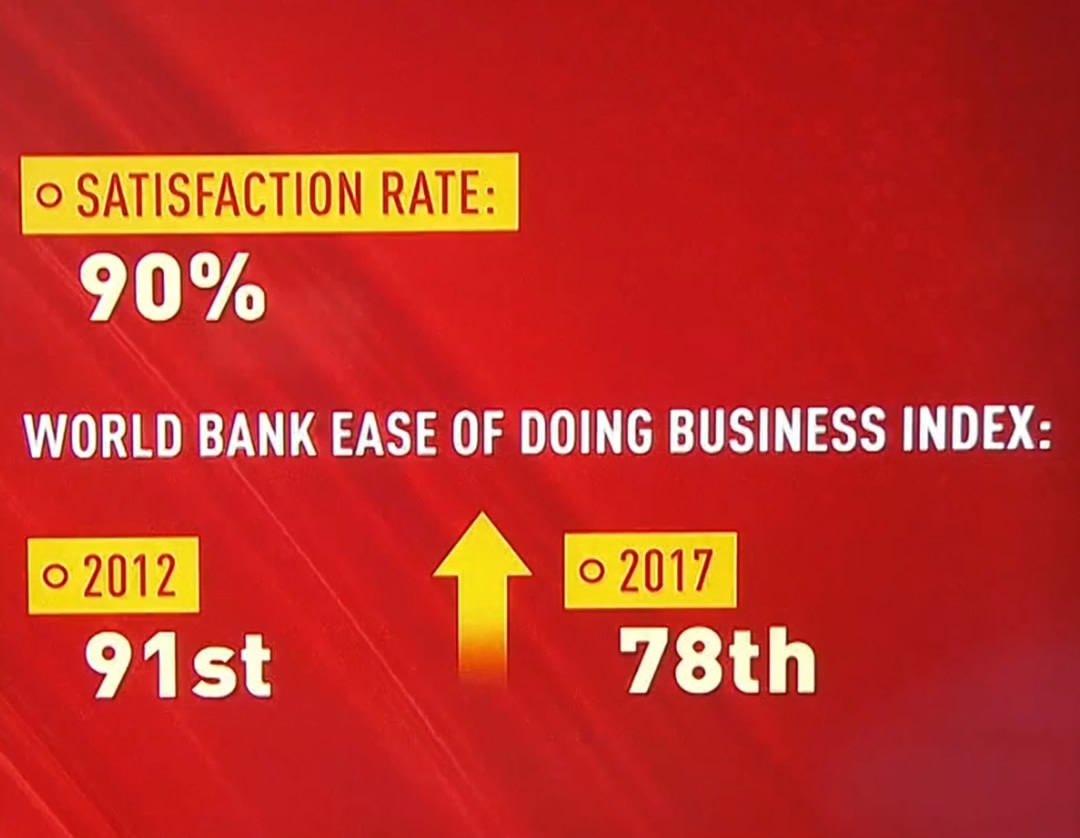
Business
14:51, 21-Oct-2017
China’s economy under five years of structural reform
CGTN

Since the 18th CPC National Congress in 2012, China has maintained growth while restructuring its economy. It hasn’t been easy but progress has been solid, as seen in data released by the government at the 19th CPC National Congress.
In the past four years, China's GDP grew at an average of 7.2 percent, nearly three times the world average.

CGTN Photo
CGTN Photo
Growth is good for jobs. The economy added 52 million jobs in the period, which kept China’s unemployment rate low, at around 5 percent. In September this year, unemployment fell to a five-year low 4.8 percent.

CGTN Photo
CGTN Photo
The Chinese economy is not just growing, it's changing. It now relies more on consumption than on trade and investment. In the first half of this year, the service sector accounted for more than half of China's GDP, and so did domestic consumption.

CGTN Photo
CGTN Photo
Once criticized for lack of innovation, the country is now trying to encourage it. Research and Development spending, and the number of patent applications both increased significantly.
Part of the shift towards higher consumption is driven by e-commerce, which has been booming since the last party congress, growing by more than 30 percent a year.
For example, on November 11, China's Singles' Day alone, Jack Ma's Alibaba platforms recorded nearly 18 billion US dollars in sales, nearly 7 times more than the famous Black Friday sales in the US.
There has also been a change in welfare for average citizens. Per capita disposable income rose by more than 1,000 US dollars, climbing at an annual rate of 7.4 percent.
Also, over 60 million more people were lifted out of poverty over this period.
The restructuring of China's economy is still ongoing, and challenges remain.
Foreign firms in China
When foreign firms do business in China, the first thing they usually think about is how transparent and efficient the government is. That's also what China has been working on over the past few years.
At the last party congress, China pledged political reform. Since then, the government has streamlined bureaucracy.
In 2012, there were more than 1,500 items that required administrative approval from the State Council. Now the list is down to only 632 items.
There is also less paperwork for setting up a business. Ninety-five percent of foreign-invested enterprises now only need record-filing instead of full government approval.
The government has taken steps to cut taxes for private enterprises, especially for small and micro businesses. It has eliminated more than 1,100 kinds of fees and charges, which has cut more than two trillion yuan (roughly 294 billion US dollars) in taxes and fees.
Another issue they've been trying to do is to boost efficiency. More government services are now available online. There are so-called “one-stop shops,” through which businesses and residents alike can have an easier time finding what they want.
China's entrepreneurs and foreign firms doing business in China have both welcomed these measures.

CGTN Photo
CGTN Photo
One official opinion poll says the satisfaction rate is around 90 percent.
In a World Bank ranking for ease-of-doing business, China moved up 13 places since 2012.

SITEMAP
Copyright © 2018 CGTN. Beijing ICP prepared NO.16065310-3
Copyright © 2018 CGTN. Beijing ICP prepared NO.16065310-3